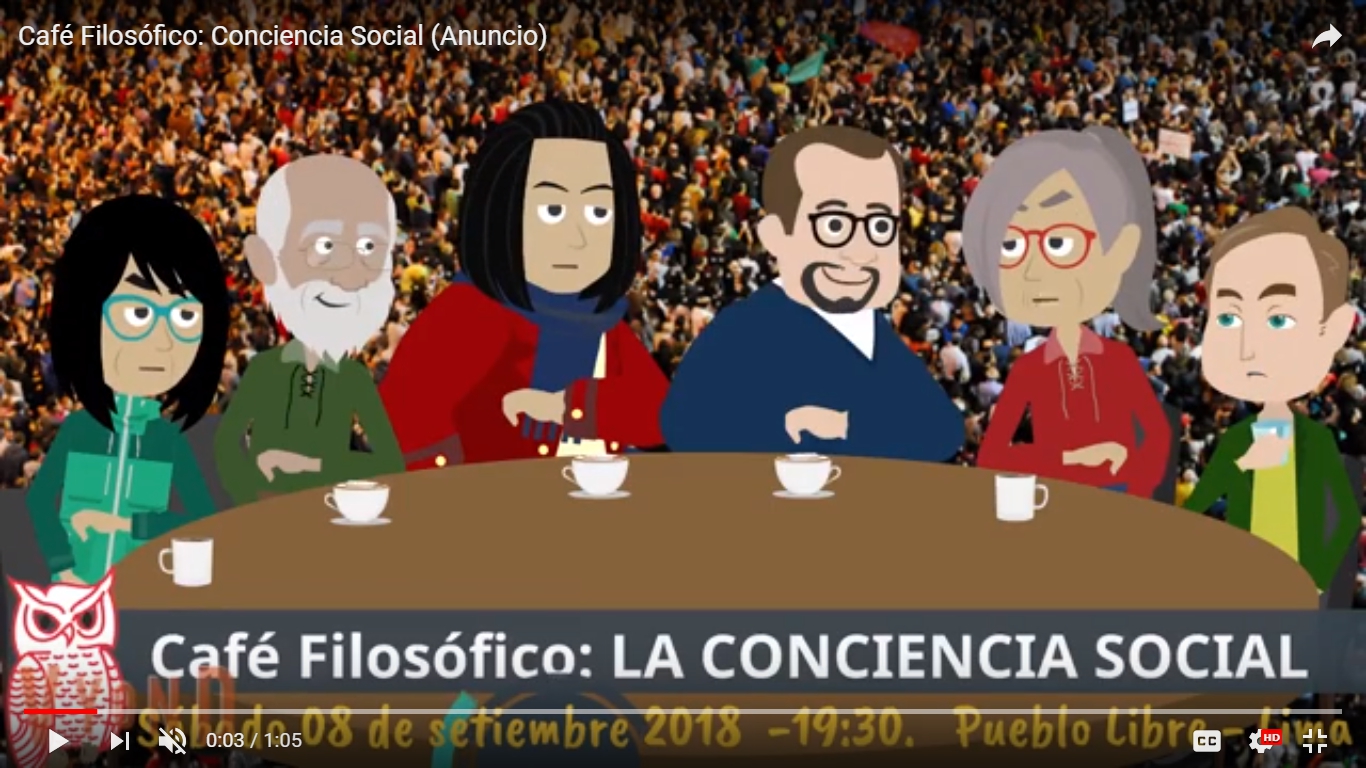Since we began our weekly philosophical cafés in 1998, most of our participants have been political activists, or at least people interested in the political sphere. As a rule, in each meeting our participants choose democratically the philosophical issue to be discussed in the next meeting. As a result, our café often introduces philosophical reflections into the political discourse.
Inspired by the idea of empathic understanding, which I picked from several sessions of Socratic Dialogue at the ICPP in Leusden, we have developed some useful procedures to keep such sessions philosophical.
Last night we discussed the issue: “What is social consciousness?” We began by reading aloud several excerpts about social consciousness by Marx and Ortega y Gasset, and this created the reflective atmosphere inherent to philosophy.
“Social consciousness” seemed to us a difficult concept for a philosophical discussion, because our participants tend to have strong opinions about it. They might be tempted to make declarations instead of philosophizing, to denounce society for “a lack social consciousness,” to explain what Marx said about the topic, or to declare how Marx was right or wrong.
In order to avoid this flood of spontaneous opinions, we gave participants two tasks before starting a more open discussion.
First, they had to give an example from their own life in which they personally experienced social consciousness. This was intended to connect them personally to the concept, and to clarify to themselves and to the others how they understood this concept. From the examples given we could recognize several different understandings of social consciousness. There was the political understanding of social consciousness, but the concept was also understood in terms of social conscience and responsibility, in terms of collective consciousness, and even in terms of individual self-awareness of being part of society.
This first step prepared us to reflect on the issue together, even though we did not share exactly the same understanding, and to do so without having to impose an artificial unified definition that would be foreign to our authentic experiences.
The second and last task before the open discussion was to say whether or not they believed that social consciousness can be taught and learned, and to explain why. This was intended to draw their attention to a problem that is inherent to the concept, and relate this problem to their previous understanding of the concept. By finding the words to respond to this problem they start to digest the concept.
From here the discussion became more open and free, but it maintained its focus thanks to the first two steps. We could now reflect philosophically on an issue that is often dealt with only ideologically. We could clarify distinctions, acknowledge alternative perspectives, and follow lines of thought to which we were not accustomed, and thus broaden a little bit our vision of the world.
The issue voted for the next session: What is the importance of philosophy of art?
